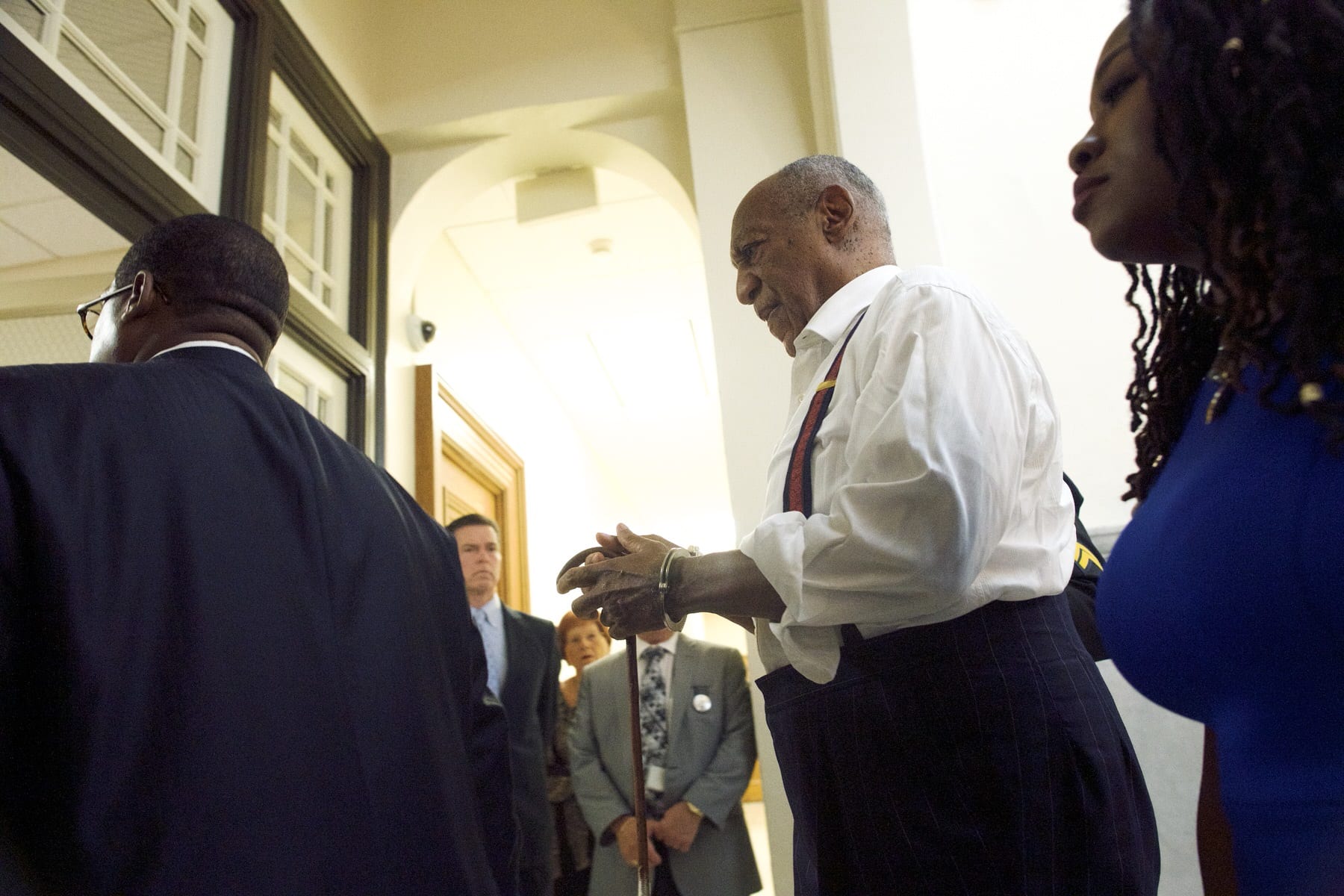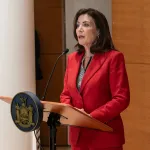A court decision on Wednesday to overturn comedian Bill Cosby’s sexual assault conviction sent shockwaves among sexual assault survivors and advocates for victims.
Many took to social media to express dismay that Cosby, who had been serving a 3- to 10-year prison sentence for drugging and sexually assaulting a woman named Andrea Constand, would be released due to a prosecutorial mistake.
But the decision sends a message about the lack of accountability for perpetrators and highlights the systemic issues that regularly fail survivors of assault and victims of harassment, many said.
In a statement released Wednesday night, Constand and her lawyers said the decision “is not only disappointing but of concern in that it may discourage those who seek justice for sexual assault in the criminal justice system from reporting or participating in the prosecution of the assailant or may force a victim to choose between filing either a criminal or civil action.”
Other survivors expressed similar concerns. “Victims like myself are questioning, should I not move forward with any of my cases right now because the system will once again fail me,” said Alison Turkos, 33, a survivor of multiple sexual assaults who is now an activist based in New York City.
“I’m not surprised … the criminal legal system is not set up to support survivors and victims like myself,” she said. “I specifically say criminal legal system, because there is rarely, if ever, justice for victims and survivors of sexual assault and rape.”
Amid the public outcry, people were quick to point out that the court’s decision is not an indication of his innocence of the crimes he was charged with.
“Legality and ethics are often on opposing sides and whether or not that court had the legal right to overturn Cosby’s conviction does not make this RIGHT,” tweeted Luvvie Ajayi Jones, a Nigerian-American author who has spoken out at length on matters of justice and ethics.
Cosby, whose television series “The Cosby Show” made him a household name in the 1980s, was convicted in 2018 on three counts of aggravated assault for drugging and sexually assaulting Constand in 2004. He has appealed the conviction in June 2019.
The Pennsylvania Supreme Court agreed to hear Cosby’s appeal and ultimately cited prosecutorial mistakes in ruling on Wednesday to overturn the conviction. The panel of judges determined there was a “vast” violation of Cosby’s due process rights in part because a district attorney in Montgomery County, Pennsylvania, agreed not to prosecute him in 2005, — a decade before he was ultimately charged by a prosecutor.
“Seeking ‘some measure of justice’ for Constand, D.A. Castor decided that the Commonwealth would decline to prosecute Cosby for the incident involving Constand, thereby allowing Cosby to be forced to testify in a subsequent civil action, under penalty of perjury, without the benefit of his Fifth Amendment privilege against self-incrimination,” the judges wrote. The state’s high court also said he cannot be retried in the case.
In their statement, Constand and her lawyers criticized the reasoning of the court’s opinion. “The Court acknowledged that the former District Attorney’s decision note to prosecute Mr. Cosby was not a formal immunity agreement and constituted at best a unilateral exercise of prosecutorial discretion not to prosecute at the time,” the statement said.
“The Court also acknowledged that it agreed with the lower court’s credibility determinations, but nevertheless precluded a future prosecution, which included additional evidence developed in the civil case,” it continued.
Christian F. Nunes, president of National Organization for Women, said agreements like these can be made in sexual assault cases without consideration for the humanity of those of have suffered. She added that the issue is bigger than Cosby and speaks to the additional steps that need to be taken to better protect all survivors: women, LGBTQ+ people and men.
Cosby issued a written statement, saying: “I have never changed my stance nor my story. I have always maintained my innocence. Thank you to all my fans, supporters and friends who stood by me through this ordeal. Special thanks to the Pennsylvania Supreme Court for upholding the rule of law.”
Cosby was one of several prominent men, including Harvey Weinstein, accused of either sexual assault or sexual misconduct. The cases, ranging from the entertainment industry to the halls of Congress, propelled the #MeToo hashtag and movement first created by activist Tarana Burke in 2006.
Burke and Dani Ayer, who lead the nonprofit group me too. International, addressed the court decision in a statement saying, “Today’s decision is not only triggering for those who have experienced sexual violence and its emotional and physical consequences.”
The statement continued: “Our focus has been and will remain on survivors. We stand strong in solidarity with them, center the need for healing for all who are impacted by this news, and reject the damaging and diminishing stories that will emerge from this decision about who the survivors are and what they deserve.”
Amber Tamblyn, an actor and co-founder of the anti-harassment group TIME’S UP, voiced her anger at the decision. The announcement, she tweeted, “is proof that we haven’t gone far enough. Our justice system MUST change.”
Actions supported by activists include increased funding for services allocated for crime victims and the reauthorization of the Violence Against Women’s Act that was passed in the House in March, but has not yet received a vote from the Senate.
Nunes said she is hopeful that outrage over the ruling on Cosby will further push activists and survivors to champion stronger protections and services.






